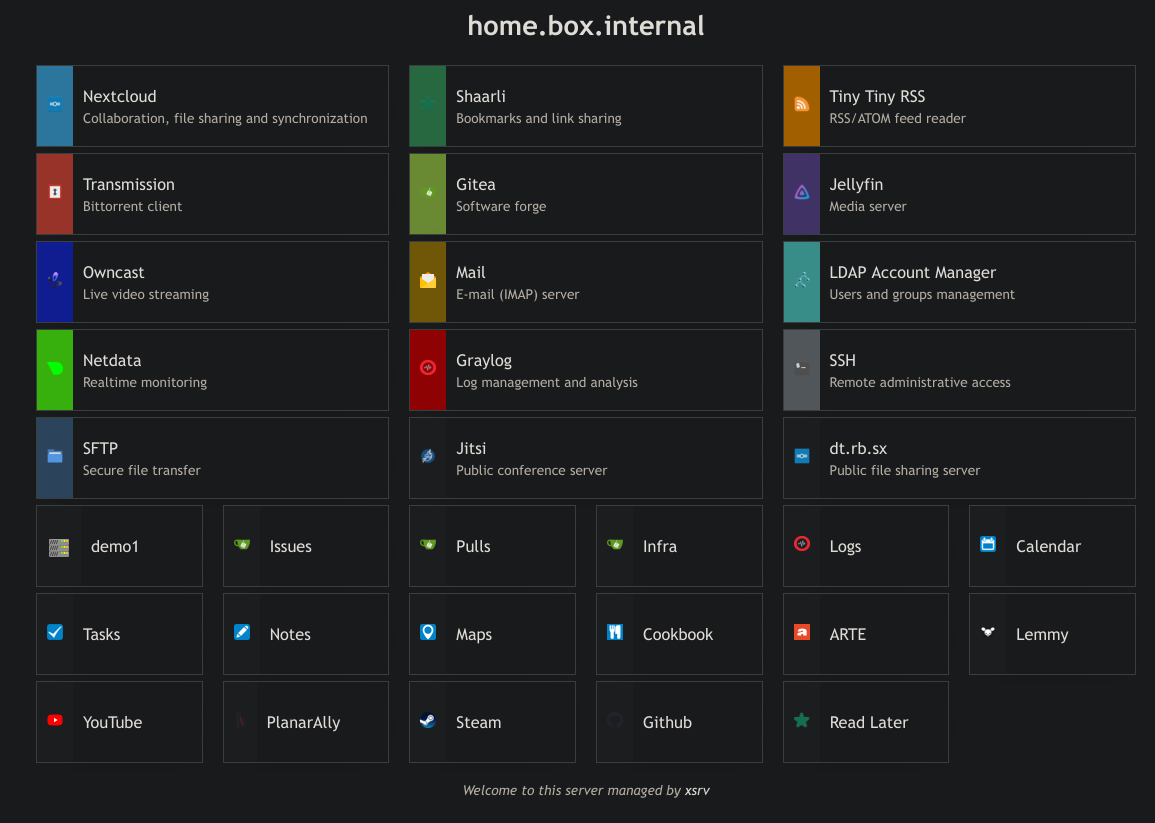I'm not really sure what this does that necessitates all of this code and backend? I just have a single HTML file with embedded CSS, and it looks better than their demo.
Selfhosted
A place to share alternatives to popular online services that can be self-hosted without giving up privacy or locking you into a service you don't control.
Rules:
-
Be civil: we're here to support and learn from one another. Insults won't be tolerated. Flame wars are frowned upon.
-
No spam posting.
-
Posts have to be centered around self-hosting. There are other communities for discussing hardware or home computing. If it's not obvious why your post topic revolves around selfhosting, please include details to make it clear.
-
Don't duplicate the full text of your blog or github here. Just post the link for folks to click.
-
Submission headline should match the article title (don’t cherry-pick information from the title to fit your agenda).
-
No trolling.
Resources:
- selfh.st Newsletter and index of selfhosted software and apps
- awesome-selfhosted software
- awesome-sysadmin resources
- Self-Hosted Podcast from Jupiter Broadcasting
Any issues on the community? Report it using the report flag.
Questions? DM the mods!
Presumably auto detects your containers? Otherwise yeah, I don't see the advantage.
I used to have a bookmark html and some CSS but nowadays I just use the proxy list in NPM — if you click on a domain it opens in a new tab.
So much server-side code :/ I wrote my own in pure HTML/CSS which gets rebuilt by ansible depending on services installed on the host. Basic YAML config for custom links/title/message.
Next "big" change would be a dark theme, but I get by with Dark Reader which I need for other sites anyway. I think it looks ok

This looks really slick! I don't use ansible though, can I still benefit from running it?
Edit: just realized that your project has a larger scope than this, but still awesome to see how you solved the homepage feature.
You can probably use it by templating out https://github.com/nodiscc/xsrv/blob/master/roles/homepage/templates/index.html.j2 manually or using jinja2. basically remove the {% ...%} markers and replace {{ ... }} blocks with your own text/links.
You will need a copy of the res directory alongside index.html (images, stylesheet).
You can duplicate col-1-3 mobile-col-1-1 and col-1-6 mobile-col-1-2 and divs as many times as you like and they will arrange themselves on the page, responsively.
But yeah this is actually made with ansible/integration with my roles in mind.
I have tried numerous dashboards but that I use Tailscale on my devices, I just use golink https://github.com/tailscale/golink
Lovely dashboard, like that it is so easy to use. But, am I missing something with just having a folder with links to my services? It is searchable, portable (Firefox profiles), and easy to modify.
A folder with links in your firefox profile works wonders for a single user case, but if you have other people using your applications (and they change from time to time), then a dashboard like this can be quite useful.
Images of Bookmarks don't "look cool" to other nerds on the internet.
I've tried nearly every selfhosted dashboard out there and in the end settled for static html/css/js. If you want to access links quickly by typing abbreviations then use something like https://github.com/Ozencb/tilde-enhanced. A lot lighter and can be used with an existing webserver too.